In a recent announcement, India’s food delivery giant Zomato announced that their female and transgender employees can now avail 10 days of paid menstrual or period leaves in a year. In a note to the employees, Founder and CEO Deepinder wrote thus,
“Ladies,
How many times have you had to send a message to your team saying “unwell today – taking the day off” and having to answer concerned questions about your health with a feeble “stomach upset / weakness etc.” when you really wanted to say “on my period, terrible cramps – need a heating pad, some chocolate and a lot of green tea (or something stronger) so I’m taking the day off”?
At Zomato, we want to foster a culture of trust, truth and acceptance. Starting today, all women (including transgender people) at Zomato can avail up to 10 days of period leaves in a year……….”
The CEO’s note also mentions among other guidelines, that in case employees faces distasteful comments or harassment while applying for period leaves, they may report such incidents to a prescribed email ID, following which the company’s Prevention of Sexual Harassment Committee (POSH) will spring into action.
The internet was soon filled with responses of various kinds pertaining to the institutionalisation of period leaves. While a good number of people welcomed the announcement, many, including senior television journalist Barkha Dutt, felt otherwise. She tweeted:

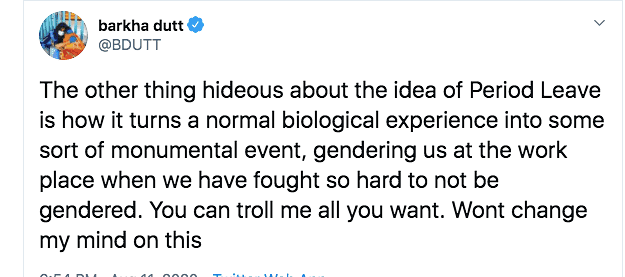
The criticism leveled against institutionalising period leaves seems to be that it leads to the exceptional, gendered treatment of women at workplaces, which consequently undermines the progress we have made in terms of gender equality. The argument is that women who aspire to engage in occupations that have traditionally been designated for men, must not ask for preferential treatment owing to a biological default like menstruation because it shows weakness and contradicts the assertion of women’s capabilities being at par with that of men.
The question that needs to be addressed here is, what it means to integrate people with different kinds of biology into the workforce. In a country like ours, where menstruation is still a topic that is hushed up, the public acknowledgement of period pain by employers is an important step forward. While criticising such a move in tandem with gender equality, we have to contextualise the debate and ask ourselves whether silent suffering is the price menstruating employees have to pay to receive equal treatment at the workplace. There is a need to delve deep into the concept of equality itself, and examine whether gender equality means laying down the same rules for everyone.
The criticism leveled against institutionalising period leaves seems to be that it leads to the exceptional, gendered treatment of women at workplaces, which consequently undermines the progress we have made in terms of gender equality. The argument is that women who aspire to engage in occupations that have traditionally been designated for men, must not ask for preferential treatment owing to a biological default like menstruation because it shows weakness and contradicts the assertion of women’s capabilities being at par with that of men.
Does Equal Mean Identical?
Barkha Dutt, and most people who criticise the concept of paid menstrual leaves argue that women must toughen up, and stop asking for favours like off-days to tackle menstrual pain if they want to bridge the gender gap at work. They feel there is no need to “turn a normal biological experience into a monumental event” and make it another reason for women to be ghettoized at work spaces that are already hostile towards employing them.
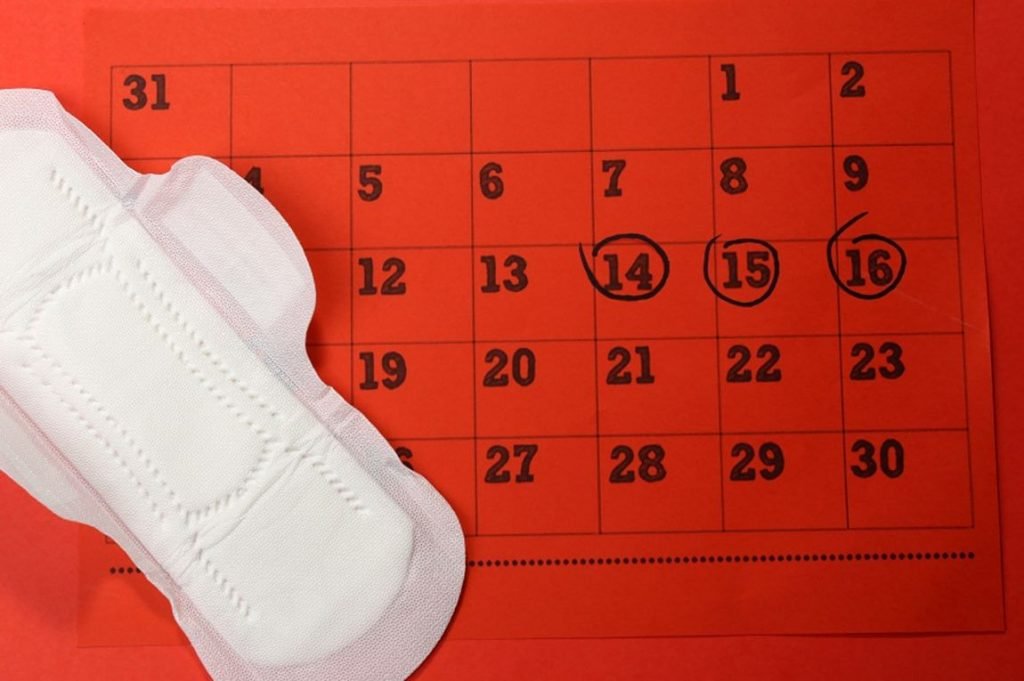
When we wrap up menstruation under the blanket label of a ‘natural phenomenon that all women/trans individuals go through’, we fail to acknowledge the subjective experience of its manifestation in individuals. It leads to the normalisation of the argument that “when everyone goes through this without making a scene, why should a few be treated any differently.” When we read gender parity with reference to period leaves what we need to perhaps understand is that equality is not about setting the same standard for everyone. It is about creating a level playing field that is aware and inclusive of the biological defaults of its stakeholders. Menstrual leaves are as important as leaves allowed on any other medical ground.
It is a popular opinion that if women/trans individuals want to be at par with men, they must be as ‘tough’ as them. The problem with this attitude is that it mistakes being equal with being identical. Equality is about assigning the same value to everyone, despite differences in their biology, physicality, caste, gender, race and the like. It is the counter narrative to the “othering” of people based on prejudice. Treating people equally does not mean expecting them to be alike.
If we pay attention, we can see that “equal does not mean identical” is what we follow in almost all collective activities as a society. Be it in classrooms, public transport, families, communities or any other space, we integrate people with different kinds of needs and abilities into the mainstream because we believe that everyone has equal value and deserves to be given equal access.
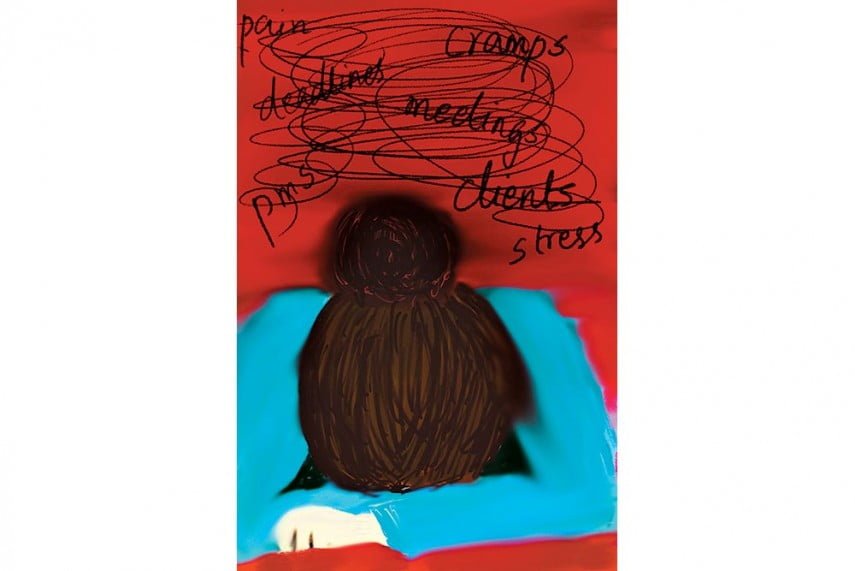
Here, it is understood that equality and alikeness are not one and the same. What Ms. Dutt seems to be advocating is that for gender parity to be a reality, women and trans individuals must function by the same rules as men, because men are the pedestal to which women and other genders have to match up to, to prove their worth. The problem with her equation does not only involve a misunderstanding of the guiding spirit of equality, but also an inherent admission that men are the standard for efficiency at the workplace.
When we read gender parity with reference to period leaves what we need to perhaps understand is that equality is not about setting the same standard for everyone. It is about creating a level playing field that is aware and inclusive of the biological defaults of its stakeholders. Menstrual leaves are as important as leaves allowed on any other medical ground.
Being good-at-work does not mean suppressing one’s biological distress. The measure for employability and workplace efficiency must squarely be objective markers that the job at hand demands. Man, woman or trans individual, every employee has the right to be given access to employment provided these objective standards are met. Within this objectivity itself, we must create the space for individuals to take care of their minds and bodies when necessary. Menstruation is surely normal. But some have it extremely bad while some others breeze through it. Giving menstruating employees an option to avail a day off is the right step forward in the process of building inclusive work spaces that do not treat employees as slaves meant to work without ever falling ill.
Around 80 per cent women experience period pain and related uneasiness like bloating, mood swings, indigestion, migraines, nausea, lack of concentration, fatigue, etc. Symptoms vary from mild to severe for different individuals and most often, women are advised to go through their monthly period in silent agony. Menstruation is an experience that in itself is structured to condition young girls into women who consider it a weakness to even address their discomfort or demand a day off.
It is true that menstruation is natural. But having to undergo severe spasms without being able to avail rest or medical intervention is not natural. It stems from the patriarchal foundations of how we view women, their bodies and their physical destinies. It is testimony to our sexist idea of how culturally sanitised we want women to look and how their pain is dismissed off as irrelevant.
Also read: National Period Day: Make Menstrual Hygiene An Active Concern In Health…
The institutionalisation of menstrual leaves sets a humanitarian, progressive precedent to further the building of gender sensitive workplaces. It also establishes menstrual leave as a basic employee right, thereby publicly addressing an important health issue that remains a social and cultural taboo even today. When a corporate giant comes forward and acknowledges the experiential hardships of menstruation, it creates a positive impact on our collective psyche and facilitates the de- stigmatisation of conversations around menstrual health because the first step to remedying a problem is acknowledging it.
There is an argument that period leaves will only make women more unemployable because the company will have to compensate for their extra off days. In a capitalistic world that is guided by profit, human beings are nothing but means to an end. But we have to also understand that these rules were laid down by us, and arguments like this reflect our unwillingness to decide in favour of fairness and humanitarian ideals against profit. Parity is not only about incorporating all genders into the workspace. It is not a favour, a bone thrown at desperate strays in order to guilt them into servitude. It is a legitimate right.
While we engage in this debate, we must also remember that people in the unorganised sector work with no benefits like menstrual leaves, their bodies and minds forced to slog through nerve wrecking pain. Increasing awareness and mindfulness about menstruation through the institutionalisation of period leaves is important to garner public opinion and push for a policy framework to accommodate the menstrual needs of working women and trans individuals across strata.
Parity is the systemic reorganisation of the workplace itself in such a way that we do not look at the biological distress of women and trans employees as an inconvenience. Moreover, parity is also an attitude, an inner reorganization of conscience which must push us to truly embrace the fact that menstruation and childbirth are all events that occur in a woman/trans person’s life. They bleed, gestate and procreate to further the communities and families we all belong to and hold sacrosanct, including the men and women who make decisions for and against menstrual leaves.
To dismiss menstruation as an alienating, private experience, or a commercial loss is primitive and beneath a civic society that prides itself on values of equality. It is also indicative of our reluctance to accept that no rule must be ironclad when it comes to furthering fairness and progressive thought.

While we engage in this debate, we must also remember that people in the unorganised sector work with no benefits like menstrual leaves; their bodies and minds forced to slog through nerve wrecking pain. Increasing awareness and mindfulness about menstruation through the institutionalisation of period leaves is important to garner public opinion and push for a policy framework to accommodate the menstrual needs of working women and trans individuals across strata.
Also read: ‘Period Leave’, Period. Unlearning The Bias Against Menstruation At Workplace
Institutionalising period leaves is a welcome step in the re-imagination of women’s/trans health and their wholesome integration into the workforce. Zomato is not the first company to introduce period leaves in the country and while the move must be appreciated, we must also recognize that it took our corporates so long to implement the bare minimum. We are still at the juncture of celebrating the basics when it comes to women’s/trans health and that is very telling of how skewed our vision of parity is.
Enduring pain without complaints must not be projected as strength. Neither must pain be used as a reason for employees to be made to feel inferior. Menstruation truly becomes a natural phenomenon only when we acknowledge all aspects of it instead of covering up the difficult bits by setting unreasonable standards of efficiency and workplace parity.
About the author(s)
Sukanya is a lawyer-turned-journalist with experience in writing, editing, development communication, and advertising. She holds a graduation in law, a post-graduation in philosophy, and a post-graduate diploma in print journalism. She is also a published poet and was awarded the All India Poetry Prize in 2015. Her journalistic work is deeply focused on gender and intersectionalities, and they appear in Feminism In India, True Copy Think, and The News Minute.
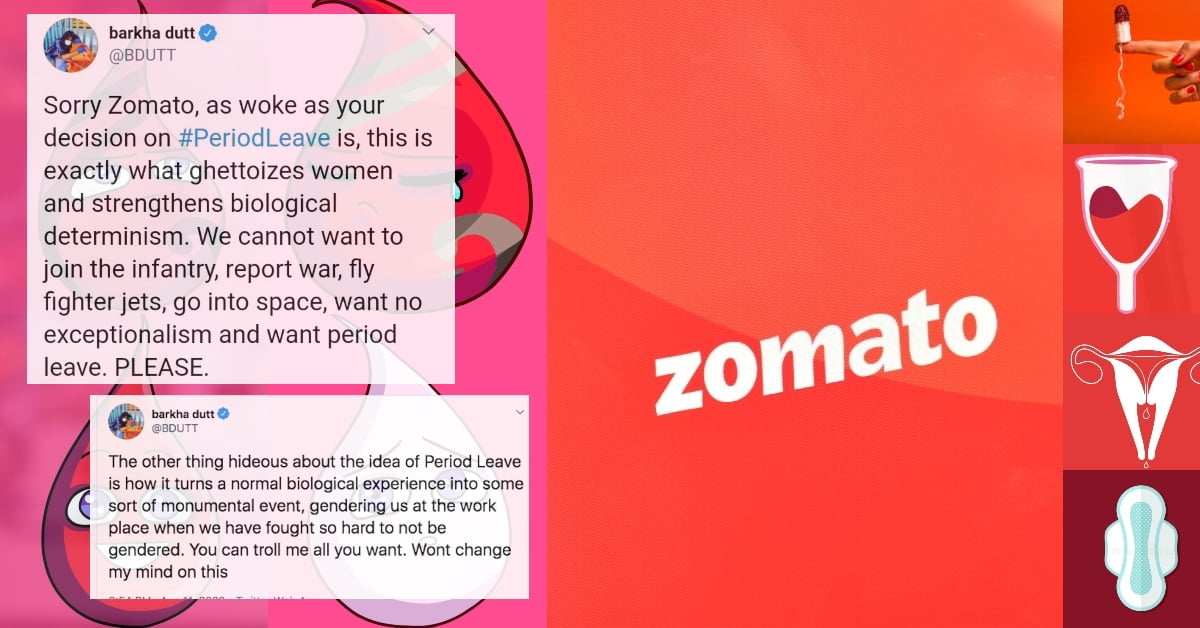

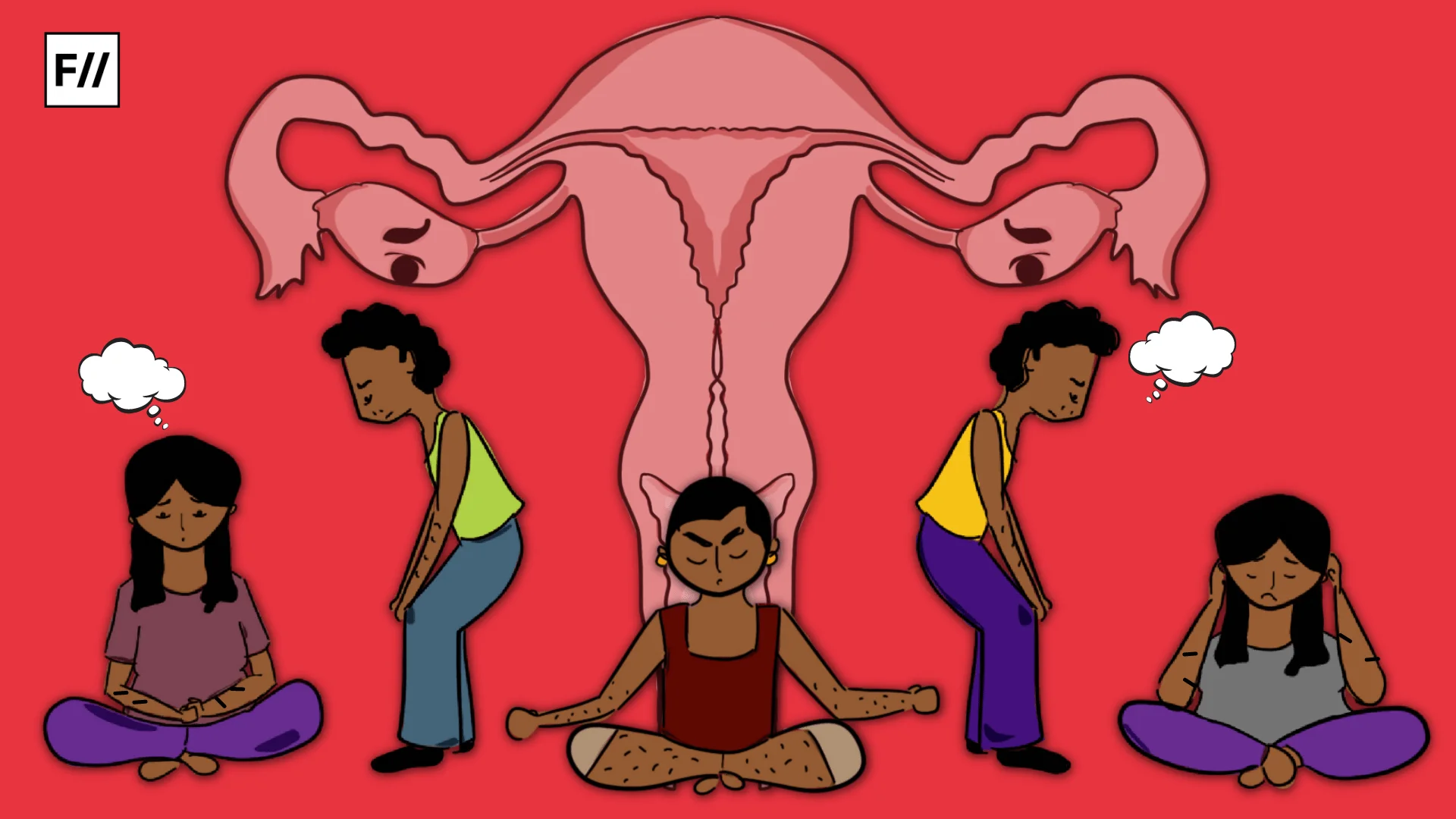


https://medium.com/ask-me-about-my-uterus/why-menstrual-leave-is-not-the-solution-e3ecff9e167a
The article has pretty much treated equality/parity as equality of outcome of genders & identical/alikeness as equality of opportunity by being unbiased to genders.
And the creation of level playing field entails corrective actions to facilitate equality of outcome instead of providing an unbiased chance.
While I may or may not agree with the thesis if this essay but I would like to mention that this kind of word-play confuses readers and misleads them. This is disingenuous.